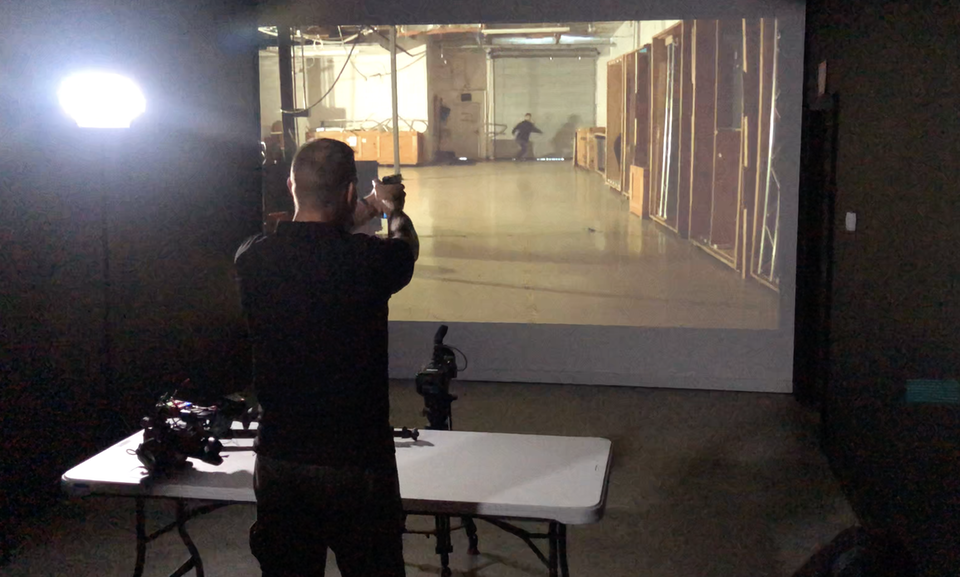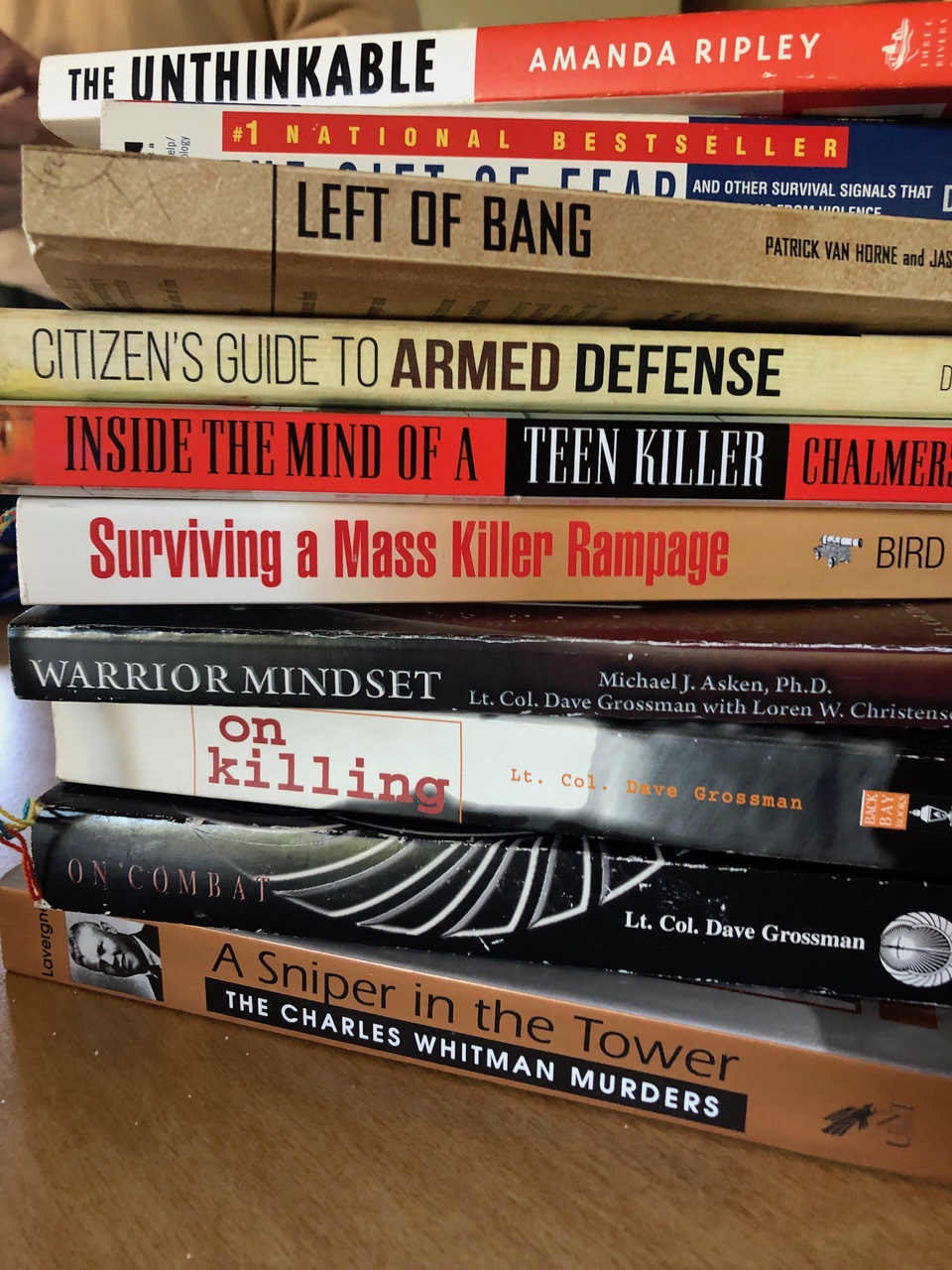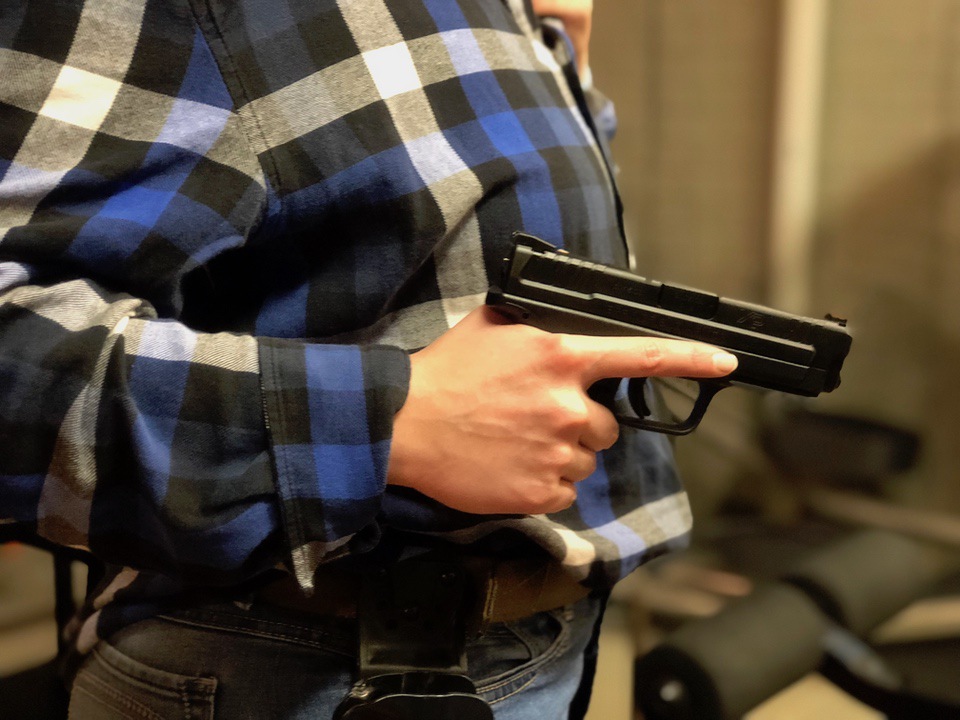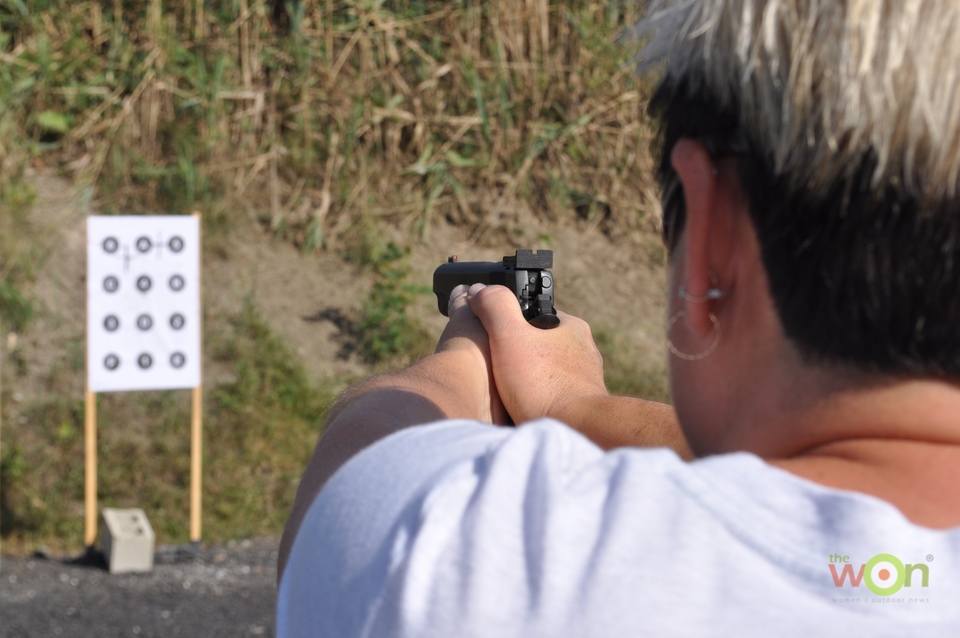Have you ever tried firearm simulator training? I recently had the opportunity at the Boondocks Firearms Training Academy (Boondocks FTA) in Raymond, Mississippi. A firearm simulator is much more than just a video game. Used correctly, this eye-opening experience offers numerous training opportunities.
Gear Up is sponsored by Springfield Armory
Simulators are designed to expose students to real-life scenarios and see how they react when confronted by a threat. SIRT Laser pistols or CO2 loaded firearms are often used, NEVER live ammunition.
Before the firearm simulator begins, students learn what scenario they are walking into. For example, “As you leave work, you are walking to your car and approached by a man you do not know.” or “You’re upstairs in your home when you hear a noise.”

At the end of simulation, there usually is an after-action debriefing. This is a time to discuss what happened and how things could have been done differently and this … is where the training comes in.
If you can try a firearm simulator, consider these training opportunities afterward.

When using a simulator for training, you are put in a situation where you have to react to a stimulus. During the debriefing, it’s important to verbalize why you reacted the way you did. This is where mindset comes in. Read more about mindset in a previous article I wrote, 7 Ways to Diminish Your Chance of Being a Victim.
Another point to reflect on after the firearm simulator is how well you could draw from concealed carry. Were you able to get to your firearm and draw without fumbling? A great way to improve your draw is with dry fire practice. Stacy Bright wrote a great article, Dry Fire Training Tips: Get the Most Out of Your Firearms Training. Build your skills while in the comfort of your home so you are better prepared when you have a deadly encounter.

Often when using a firearm simulator, the instructor can show you where your shots went. This is a great opportunity to learn what you need to work on when it comes to engaging a target. If you missed precision shots, try setting up smaller or longer distance targets on the range. If your shots were all over the place, make sure to practice pressing your trigger straight and to the rear so as not to disturb your sights. Work with an unloaded pistol first, perhaps even taking yourself back to the fundamentals. Read Concealed Carry Journey: Grip, Trigger Press and Sight Picture for more information on the fundamentals.

Always attend firearm simulator training with an open mind. Remember, firearm simulators put in you a situation where you are already on edge, you are the only target and know you must take some type of action. Also, depending on the room where the simulator is located, cover isn’t always available as an option. And, the simulator forces you to move in a predetermined direction you may not have chosen. So, consider everything a learning experience. Failure is acceptable, and should result in learning and time spent working on improving your skills. Firearm simulator training is a great way to design your own curriculum and determine what you need to work on when it comes to concealed carry.
Michelle Cerino, aka Princess Gunslinger, first entered the firearms industry in 2011 as co-owner, president and trainer at a national training company. She immediately began competing in both 3-Gun and NRA Action Pistol, becoming a sponsored shooter. Michelle is currently a columnist and Managing Editor of Women’s Outdoor News, as well as owner of Pervenio LLC. She also manages social media for Vera Koo and FASTER Saves Lives. Michelle encourages others to step out of the comforts of home and explore. View all posts by Michelle Cerino